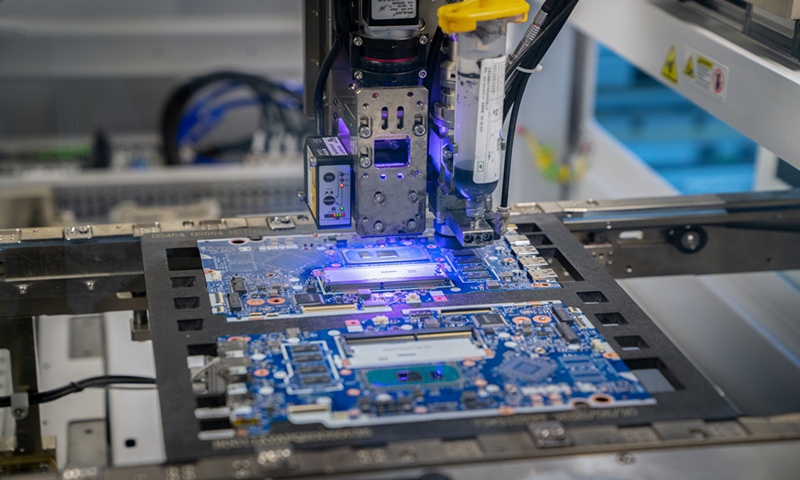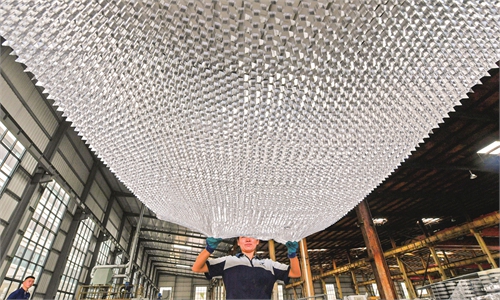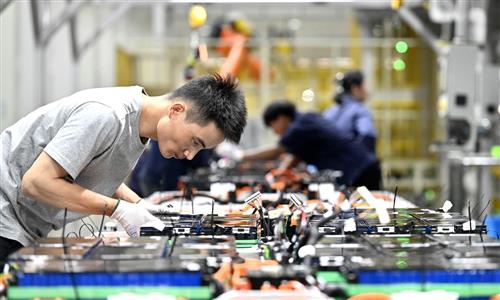
A chip manufacture machine Photo: VCG
Four Chinese government departments, including the National Development and Reform Commission (NDRC), on Thursday released a notice on the cost reduction work for enterprises in 2024, aimed at supporting the quality development of the real economy.Cost reduction measures will help enhance the competitiveness and innovation capabilities of businesses, driving sustained and healthy economic growth, experts said.
As a highlight of the 22-point measures, the NDRC stressed the need to make tax and fee cuts more targeted, offer pre-tax deductions for research and development expenses and provide tax breaks for technology transfers.
It also pledged to strengthen funding for technological upgrades, implement tax incentives for technology investments, and promote the transformation of traditional industries toward high-end, intelligent and green development. More efforts will also be made to promote the high-quality development of small and medium-sized enterprises (SMEs) in key industries.
Other key efforts include stabilizing and lowering loan interest rates, and utilizing the loan prime rate reform and market-based adjustment mechanisms to reduce overall financing costs.
Efforts are being made to reduce the cost of land and raw materials for businesses, alleviate the pressure of labor costs and strengthen support for industries with high employment capacity.
Efforts will also be made to improve the quality and efficiency of logistics while reducing costs. This includes stepping up the construction of national logistics hubs and backbone cold-chain logistics bases, as well as logistics distribution systems in rural areas.
Hu Qimu, a deputy secretary-general of the Digital-Real Economies Integration Forum 50, told the Global Times on Thursday that the cost reduction policy aims to incentivize enterprises to engage in innovative activities, cultivate new quality productive forces and pursue transformation and upgrading.
The policy is expected to boost the innovation enthusiasm of enterprises, alleviate financial pressure on market entities, and accelerate the transformation of research and development into productivity, Hu said.
China has been making steady efforts to lower costs in the real economy and stimulate market vitality.
Efforts should be made to further optimize the freight transportation structure, promote the digital, smart and green development of the logistics sector, and substantially bring down logistics costs, according to a State Council executive meeting on May 11.
Noting that the digital transformation of the manufacturing sector is key to advancing new industrialization and the building of a modernized industrial system, the meeting called for efforts to scale up support for the digital shift of SMEs, optimize public service platforms and establish a long-term mechanism for boosting the digital transformation of SMEs.



